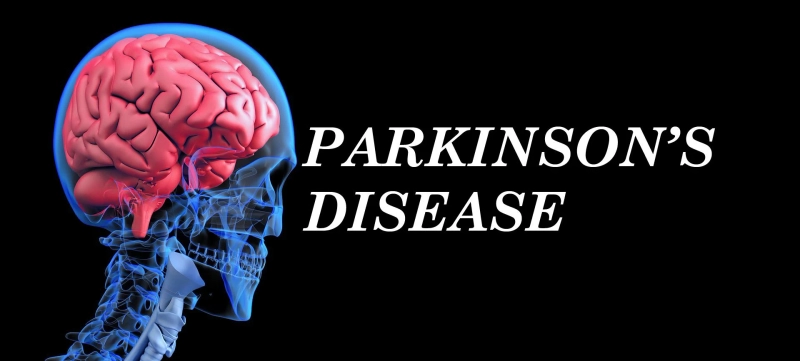Parkinson’s Disease Overview:
Parkinson's Disease is a complex neurological disorder that affects millions of people worldwide. In this comprehensive article, we will delve into various aspects of Parkinson's disease, including diagnostic analysis, treatment options, market trends, segmentation, and opportunities for both patients and the healthcare industry.
Parkinson’s Disease Diagnostic Market Players Are:
Imaging Tests:
Fujifilm HoldingsGE HealthcareSiemens HealthcarePhilips HealthcareShimadzu CorporationToshiba Medical Systems CorporationCarestream HealthHitachi Medical CorporationLaboratory Tests:
Johnson & JohnsonNovartis AGAbbott LaboratoriesMedtronic PLCBaxter InternationalDanaher CorporationGeneral ElectricAllergen PLCBrowse In-depth Research Report on Parkinson’s Disease
https://www.diseaselandscape.com/mental/parkinsons-disease
Diagnostic Analysis:
Early Detection MattersEarly diagnosis is crucial in managing Parkinson's disease effectively. The early symptoms of Parkinson's disease can be subtle and often mimic other conditions. These symptoms may include tremors, stiffness, slow movement, and postural instability. To aid in early detection, healthcare professionals often rely on a combination of clinical assessments, medical history, and specialized tests.
The Role of NeuroimagingAdvanced neuroimaging techniques such as MRI and PET scans have revolutionized the diagnosis of Parkinson's disease. These tools allow doctors to visualize changes in the brain, such as the reduction of dopamine-producing cells, which is a hallmark of the disease. Utilizing such diagnostic advancements can lead to more accurate and timely diagnoses.
Parkinson’s Disease Treatment Analysis:
MedicationsMedications remain a cornerstone in managing Parkinson's disease symptoms. Drugs like Levodopa, dopamine agonists, and MAO-B inhibitors help alleviate motor symptoms by replenishing dopamine levels or mimicking its effects in the brain. However, the effectiveness of these drugs can diminish over time.
Surgical InterventionsFor individuals who no longer respond well to medication or experience severe motor fluctuations, surgical options like deep brain stimulation (DBS) may be considered. DBS involves implanting electrodes in specific areas of the brain to regulate abnormal electrical signals and control symptoms.
Emerging TherapiesResearch into novel treatments for Parkinson's disease is ongoing. Stem cell therapy, gene therapy, and neuroprotective agents are areas of active investigation, offering hope for potential breakthroughs in disease modification and long-term management.
Market Trends Analysis:
Growing Aging PopulationThe global increase in the aging population is a significant driver for the Parkinson's disease market. As the risk of Parkinson's disease rises with age, the demand for diagnostic tools, treatments, and supportive care is expected to increase.
Technological AdvancementsAdvancements in telemedicine and wearable technologies have made remote monitoring and early detection more accessible. This trend can enhance the quality of life for Parkinson's patients and streamline the delivery of care.
Collaborative Research InitiativesCollaborative efforts between pharmaceutical companies, research institutions, and patient advocacy groups have accelerated drug development and clinical trials. This collaboration is critical for bringing innovative treatments to market.
Segmentation:
By GeographyThe prevalence of Parkinson's disease varies by region, leading to different healthcare needs and market dynamics. North America and Europe have a higher prevalence, while emerging economies in Asia and Latin America are witnessing increasing cases.
By Treatment TypeMarket segmentation also occurs based on treatment types, with categories like medication, surgical interventions, and emerging therapies each constituting a significant segment.
By End-UserThe end-user segmentation includes hospitals, clinics, and homecare settings, with each sector having unique requirements for Parkinson's disease management.
Opportunities:
Improved DiagnosisOpportunities for developing more accurate and accessible diagnostic tools, including portable neuroimaging devices and biomarker-based tests, can enhance early detection and intervention.
Personalized MedicineTailoring treatment plans based on a patient's specific genetic and neurobiological profile is a promising avenue. Personalized medicine can optimize therapy outcomes while minimizing side effects.
Supportive TechnologiesInvesting in technologies that improve patients' daily lives, such as smartphone apps for symptom tracking and medication reminders, presents a growing market opportunity.
Conclusion:
Parkinson's disease remains a significant global health challenge. However, with advancements in diagnostic tools, innovative treatment options, and a growing emphasis on research collaboration, there is hope for better management and improved quality of life for individuals living with Parkinson's disease. Understanding the evolving landscape of this disease and its associated opportunities is essential for healthcare professionals, researchers, and stakeholders in the Parkinson's disease market.
Browse Through More Mental Health Disorders Research Reports:
For More Related Reports:
Levodopa/Carbidopa's New Formulation ND0612 Performs Effectively in Phase III Trials: A Victory Against Parkinson's Disease
Unlocking Relief: Effective Psoriasis Disease Management Strategies
Revolutionizing Parkinson's Disease Care: Global Insights and Innovations
Unlocking the Latest Breakthroughs in Alzheimer's Disease Research: Hope on the Horizon
Rising Against the Odds: Global Insights into Multiple System Atrophy (MSA) Disease



